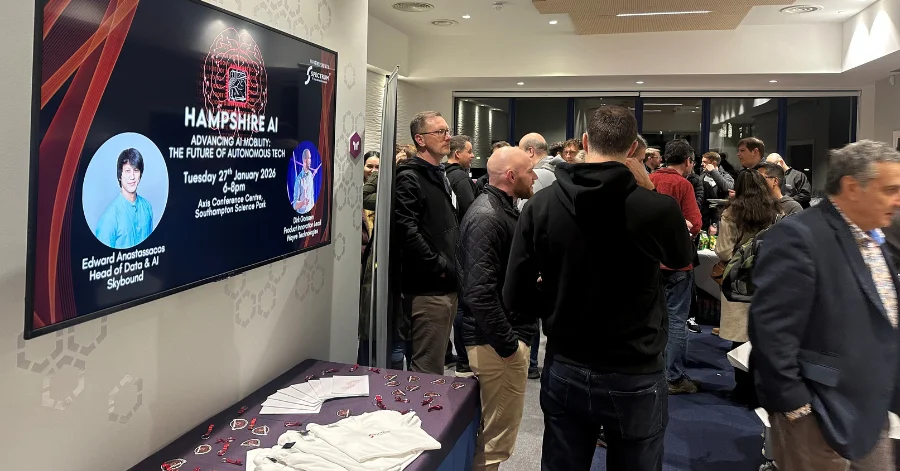
Is the Great Resignation likely to continue in 2022?
27 Jun, 20229 Minutes
Is the Great Resignation likely to continue in 2022?
The so-called ‘Great Resignation’ – with an unprecedented number of employees leaving their jobs – sent ripples across the world in 2021. The post-Covid working landscape seems very different to the one we left behind in 2019, with many employees looking for more out of their employment. But this period of unsettlement doesn’t seem to be coming to an end quite yet.
The PwC Global Workforce Hopes and Fears Survey 2022 surveyed over 52,000 workers from 44 countries and territories, including around 2,000 people from the UK. It found that 18% of respondents are very or extremely likely to switch employers within the next year, with another 32% moderately likely, and 16% looking to leave the workforce entirely.
The main motivations for this desire to change jobs included reasons such as a pay increase and wanting a more fulfilling job. Highly skilled workers, including those in the tech industry, were shown to be more likely to feel satisfied with their job, but a huge demand for skilled IT workers means that employees have options – and employers need to work hard to retain and motivate their staff. Large salaries are no longer enough on their own to tempt the most skilled of IT talent.
As Kevin Ellis, chairman and senior partner at PwC UK, says: “The economic outlook may be uncertain, but it would be premature to call the end of the great resignation. Highly skilled workers are in hot demand and employers can’t be complacent.”
Age plays a part too; the Great Resignation is being driven by the younger workforce, the ‘Gen Z’ era. Just 16% of IT workers aged 19-29 years old plan to remain in their current job roles, in comparison to 48% of 50-70 year olds (source).
What is driving the Great Resignation?
There are a plethora of factors driving this Great Resignation. One of which is the want for more flexible ways of working. In 2020, when the country shut down during the height of the Covid pandemic, the shift to a more remote way of working was substantial. Companies needed to find new ways of working, while supporting their workforce to do their jobs from home. There was a necessity to invest in better collaboration technology to enable teams to continue to work together harmoniously from anywhere in the country. As we’re at the start of a return to office working, many employees still want to retain the benefits of working in a more flexible manner. Why spend hours on a long commute to work in-house when the same job can be performed from home just as efficiently?
Remote and hybrid working is only a part of the puzzle, however. The pandemic also gave employees space to re-evaluate what they wanted out of life. For many of those who have contributed to the high job-switching statistics, it was to pursue an entirely new career or to retrain in a new area. For others who were happy in their industry, they might be seeking a better work/life balance, or new opportunities for growth and advancement within their current sector.
There are also more options available now. Those looking to switch jobs, especially in highly skilled sectors like IT, will find that there are multiple suitable opportunities available at any one time. Rather than attending numerous interviews and getting just one or two job offers, talent may be in the fortunate position of having multiple job offers to consider. This means that employees can compare companies far beyond simply the pay packet, looking for the values and opportunities that matter to them personally when weighing up the options. This is where specialist recruitment services, like Spectrum IT, play a key role – enabling employees to navigate multiple job offers, while also advising companies on what it is that the next wave of tech talent is looking for in their ongoing career.
Looking forwards in 2022
We may start to see a slowdown of the Great Resignation throughout 2022. On a practical level, the increasing cost of living means that job security is more important than ever. Employers who take steps to help their employees feel secure and looked after, are more likely to retain a loyal workforce. And for employees, it might be that the changes they’re looking for can be found within their current environment. There needs to be a communication pathway between companies and their workforce to stem the job-shift tide.
One article in The Guardian suggests that we’re now seeing employees who did quit their job and find something new starting to regret their decision to move. The old ‘grass is greener’ adage that fuelled many career changes and shifts, may in fact not be true – employees could find themselves no better off in a new role than their old one.
In fact, we’re now seeing the emergence of a new trend – one of job crafting, ie adapting and reinventing current roles to better suit the wants of both current and prospective employees. This relies on an open communication between employees and employers, to place the right people in roles that align with their interests where they will be more engaged and productive. It also helps when it comes to recruitment, to be able to craft job roles that will attract new talent and offer more opportunities to develop.
While a period of unsettlement is likely to stay for a while longer, we should start to see signs of the Great Resignation slowing throughout this year. Lessons can be learned on both sides, by employees and employers, which should pave the way for a new period of job satisfaction and productivity.
If you’re an employee looking to switch your role in 2022, you can view the latest IT vacancies in the south using our Job Search or find out more about our candidate services can help you find the perfect IT role. If you’re a company looking to recruit new talent into your workforce, find out how we can work with you to source IT professionals who meet your exact requirements.




